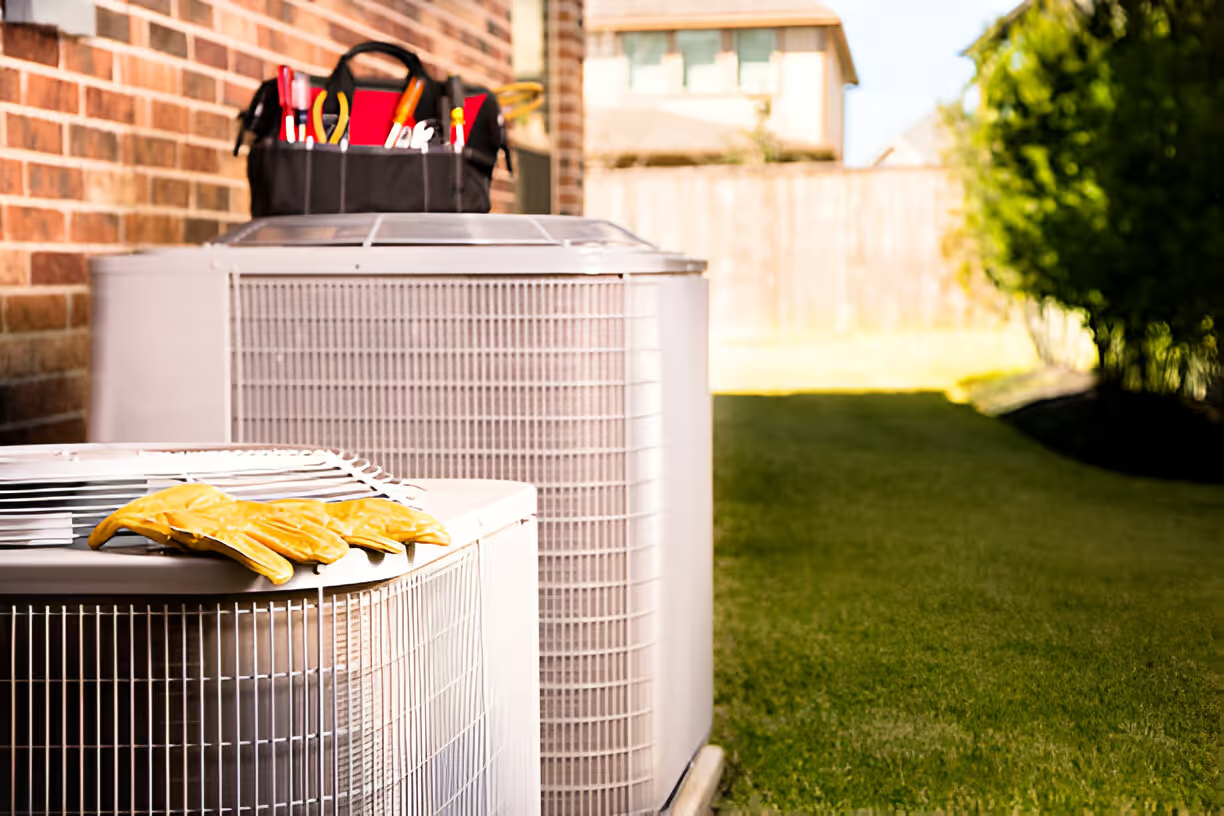HVAC Tune Up in Glen Cove, NY
Keeping your heating and cooling systems tuned is essential in Glen Cove, NY, where coastal humidity, seasonal temperature swings, and salt air put extra strain on equipment. A professional HVAC tune up in Glen Cove focuses on restoring efficiency, improving reliability, and preventing breakdowns during heat waves or cold snaps.

Why a tune up matters in Glen Cove, NY
Glen Cove homes face specific factors that increase HVAC wear:
- Coastal salt air can accelerate corrosion on outdoor coils and electrical connections.
- High summer humidity increases runtime for air conditioners and heat pumps, stressing compressors.
- Spring pollen and fall leaves can clog filters and outdoor coils, reducing airflow.
- Older Long Island homes often have legacy ductwork or aging furnaces that need careful seasonal adjustment.
A timely tune up keeps systems operating safely and efficiently, reduces energy costs, and helps avoid emergency repairs during extreme weather.
Common HVAC problems in Glen Cove
These are the frequent issues found during local tune ups and what they typically indicate:
- Corroded outdoor coils or electrical terminals: salt and moisture exposure leading to reduced heat transfer or intermittent faults.
- Low refrigerant or leaks: leads to reduced cooling capacity and higher run times.
- Dirty or clogged filters and coils: restrict airflow, causing higher energy use and frozen evaporator coils.
- Thermostat drift or poor calibration: uneven home temperatures and short cycling.
- Worn belts, bearings, or failing blower motors: noisy operation and reduced airflow.
- Clogged condensate drains: water backups that can damage equipment or cause safety shutoffs.
- Duct leaks and gaps: common in older homes, reducing system efficiency and comfort.
What technicians inspect and service
A comprehensive HVAC tune up covers both visual checks and performance testing. Typical items included in a Glen Cove tune up:
Mechanical and filters
- Inspect and replace or recommend replacement for disposable filters.
- Clean evaporator and condenser coils as needed.
- Check and tighten fan blades and blower wheel; clean debris and buildup.
- Inspect belts and pulleys for wear and tension; adjust or replace if necessary.
- Lubricate motors and moving parts where applicable.
Refrigeration and combustion
- Check refrigerant levels and measure pressures; note signs of leaks and recommend repair if needed.
- Evaluate compressor operation and outdoor unit condition.
- For gas furnaces: inspect burners, heat exchanger for cracks or corrosion, and verify safe ignition and combustion.
Electrical safety and controls
- Tighten electrical connections, inspect contactors and capacitors.
- Measure motor amp draw to detect failing motors or blocked airflow.
- Verify operation of safety controls and limit switches.
Airflow and thermostat
- Measure airflow and temperature split across the evaporator coil to confirm proper cooling performance.
- Calibrate thermostat and confirm correct placement and set points.
- Inspect ductwork access points for obvious gaps or disconnected runs.
Condensate and drainage
- Clear condensate drain lines and pans; test condensate pump if present.
- Check for signs of moisture intrusion around the indoor unit.
Performance testing and checklist
- Run a full system start-up and shut-down cycle.
- Measure supply and return temperatures to calculate temperature delta.
- Record system run time and cycling frequency.
- Provide a written checklist of completed tasks and any recommended repairs or parts.
Typical tune up process and timing
A standard residential tune up usually takes 60 to 90 minutes for a single system, longer if additional repairs or cleaning are required. Technicians follow a step-by-step diagnostic flow:
- Pre-check: review system history and current complaints.
- Exterior and interior inspection: look for visual issues and clear debris.
- Component testing: electrical, mechanical, refrigerant pressures.
- Performance verification: airflow, temperature split, combustion where applicable.
- Report and recommendations: document findings, safety concerns, and suggested follow-up.
Technicians will often note priority items that affect safety or immediate performance versus longer-term efficiency recommendations.
Expected benefits after a tune up
Homeowners in Glen Cove can expect several tangible improvements:
- Improved energy efficiency and potentially lower utility bills due to optimized operation.
- Greater system reliability and fewer mid-season failures.
- Extended equipment lifespan by reducing stress on key components.
- More consistent indoor comfort and better humidity control.
- Improved indoor air quality from clean filters, coils, and proper drainage.
- Compliance with warranty requirements for many manufacturers that require regular maintenance.
Recommended frequency
For Glen Cove conditions, best practice is:
- Air conditioning systems and heat pumps: a tune up in spring before cooling season.
- Heating systems (furnaces, boilers): a tune up in fall before heating season.
- Homes with heavy salt exposure, high pollen, or older systems may benefit from semi-annual inspections or enrollment in a maintenance plan that includes seasonal visits.
Semi-annual service (once for cooling, once for heating) ensures both sides of a split system are optimized for their respective seasons.
How booking a tune up typically works
While options vary by provider, the usual booking process and homeowner preparations include:
- Choose preferred timing windows for spring or fall service; providers typically offer morning or afternoon appointments.
- Be ready to provide system details: make, model, age, and any recent issues or error codes.
- Note access arrangements for the indoor unit and clear space around outdoor equipment.
- Ask whether the tune up includes a written checklist and any diagnostics like refrigerant pressure readings.
- Consider whether you want a single seasonal tune up or an ongoing maintenance plan that schedules visits automatically.
Bringing system information and a concise list of concerns helps the technician diagnose efficiently and complete a thorough checklist in one visit.
Final notes on maintenance and longevity
Regular HVAC tune ups are an investment in comfort and cost control, especially in Glen Cove where environmental factors cause additional wear. Prioritizing seasonal maintenance reduces emergency repairs, preserves equipment warranties, and improves indoor air quality for your home. For properties with heat pumps or older furnaces, semi-annual attention is often the most effective strategy to maintain peak performance year round.
Customer Testimonials
Hear directly from homeowners who trust Bobby O’s HVAC Inc. for fast response times, honest service, and lasting comfort.











